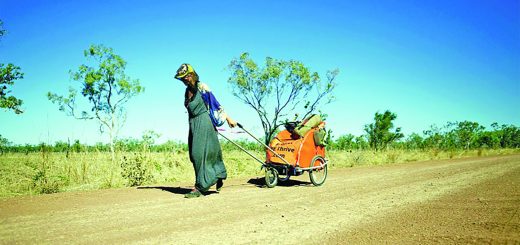The World’s Highest ATM
It may be an unlikely spot for a cash machine, but the Khunjerab Pass ATM has been serving the small number of residents and border staff – and adventurous tourists – since 2016.
“We’re going to the end of Pakistan,” I announced to my children, wrestling on their umpteenth layer of clothing.
“Will we go up or down?” they asked, flaunting characteristic first-grade geographical awareness.
“Up,” I answered, “Way up.”
We were headed to the highest-altitude cash machine in the world, located at the Khunjerab Pass border between China and Pakistan in Pakistan’s northern Gilgit-Baltistan province. I wanted to show my children the stunning scenery our country has to offer.
At a staggering elevation of 4,693m, the pass is the highest paved border crossing in the world, and getting there is one of the planet’s most dramatic drives. Craggy snow-capped Karakoram mountain peaks fence in sparse hinterlands, and Khunjerab National Park – home to snow leopards and markhor, Pakistan’s national animal – sprawls as far as the eye can see.
Our journey had started from our home in Pakistan’s coastal city of Karachi, and included a plane, a train and a more-than-six-hour drive from city of Gilgit. The well-paved road to the Pass is a fairly easy drive, and the sedan we’d rented was sufficient. But it’s the altitude that makes the trip a challenge. During the 2,000km ascent, we were instructed by our local driver-cum-tour-guide to keep dried apricots from nearby Hunza valley under our tongues to combat altitude sickness. And with our multiple layers, we’d prepared for rapidly shifting weather that could plummet as low as -5C even during summer, as well as the threat of sunburn caused by the thin atmosphere and bone-chilling winds.
When we reached the border, however, the sun shone down, making my children’s cheeks tomato red. The windswept valley was both breathtakingly beautiful and desolately open to the elements. Locals describe it as a region with only sky above and clouds below.
Why, then, is there a fully functional ATM in the middle of this remote highland?
The Guinness World Record-holding machine works like any other; it can be used to withdraw cash, pay utility bills and make interbank fund transfers. But as my kids and I acclimated to the dip in oxygen, what struck me most was the unexpected festivity in the atmosphere: almost carnivalesque, with people FaceTiming relatives, posing for photos and orbiting the ATM to get the best selfie shot.
Karachi school teacher Atiya Saeed had brought 39 of her secondary-school students – all girls – here to the Pakistan-China border. “It’s the first time in a long time that we’ve travelled in Pakistan,” she said.
Although they didn’t come for the ATM alone, the visit to the border was, she explained, an adventurous geography, history and economics lesson in the most hauntingly beautiful of “classrooms”.
Constructed by the National Bank of Pakistan (NBP) in 2016, the solar- and wind-powered machine serves the small number of residents and staff at this border crossing – and the adventurous travellers who flock to it as a badge of honour, taking pictures while making a transaction that brings new meaning to the phrase “cold, hard cash”.
“My account is frozen!” joked another visitor, South African retired principal Ayesha Bayat, who was on holiday with her husband. “We’ve come from a country where we do have mountain ranges… but not like this. I’m finding the panoramic views absolutely beautiful,” she said.
“It’s important to have landmarks… like the Eiffel Tower,” said Bayat’s husband, Farouk. “They become an excuse to discover the rest of the landscape.”
But building this landmark was no small feat. And neither is maintaining it.
The project took around four months, said NBP ATM monitoring officer Shah Bibi. The closest NBP bank location is 87km away in Sost, and Sost branch manager Zahid Hussain regularly travels back and forth, braving extreme weather, treacherous mountain passes and frequent landslides to replenish the ATM. “On average, around 4 to 5 million rupees [£15,540–£19,427] is withdrawn within the span of 15 days,” he said.
Bibi, meanwhile, monitors and provides real-time data to the Sost branch. She also has to deal with emergencies relating to satellite connectivity, solar-power backup, cash retraction and stuck cards (last year, high winds temporarily shut down the ATM). “It takes approximately two to two and a half hours for a person on the ground to reach [the ATM] and make repairs,” Bibi explained.
Indeed, some question the utility of an ATM in such a far-off location. “[But] we often forget the people guarding our borders 24/7,” Hussain said. “They might be insignificant in numbers, but they often reside in the huge park itself [and] don’t have any other medium to transfer their salaries to loved ones and family.”
Guards aren’t the only workers here. Bakhtawar Hussain has spent much of his life at the park, chasing after snow leopards or assisting scientists and researchers measuring glacial melt. He ran a small canteen close to the ATM until Covid restrictions shut it down. “I served tea, coffee and biryani… times were good,” he recalled.
He now operates the portable bathrooms at Khunjerab Pass for a small fee, and has fitted out his car with an oxygen tank to offer free first aid to visitors. “In the past few hours alone, I’ve given three women oxygen. Yesterday, there were seven,” Bakhtawar told me. The biggest culprit? Having oily or heavy food before the ascent, he said.
He’s also seen that a big concern for tourists is getting their card stuck, though he estimated that it probably happens as frequently – or as rarely – as at any other ATM. Still, up here it necessitates a wait time of at least two hours in extreme weather – or coming back again the next day. “It’s not an easy journey to retrieve it,” Bakhtawar said with a smile, quietly acknowledging just how remote we were at that moment.
For bank manager Zahid, though, that’s part of the appeal of working on the Khunjerab Pass ATM. Despite the high-pressure, high-stakes – and high-altitude – nature of his job, he said, “I feel incredibly humbled to be part of this exquisite nature and technology paradigm shift.”
Written by Aysha Imtiaz

















Recent Comments